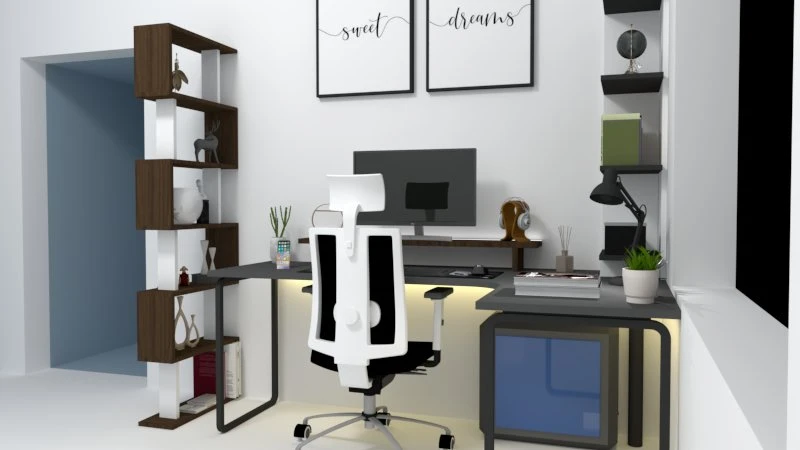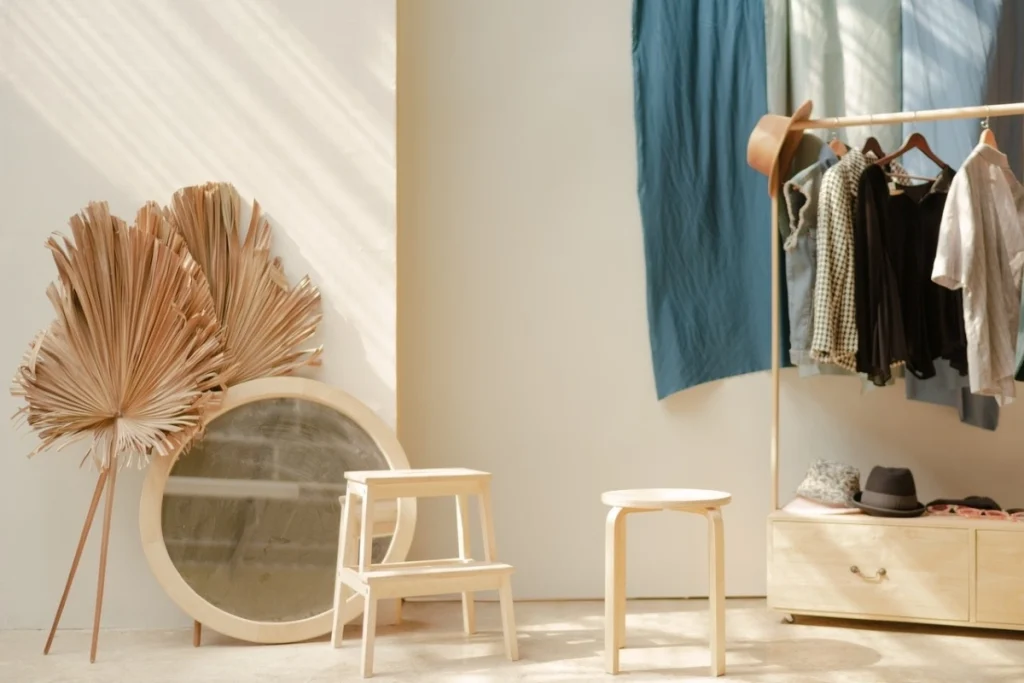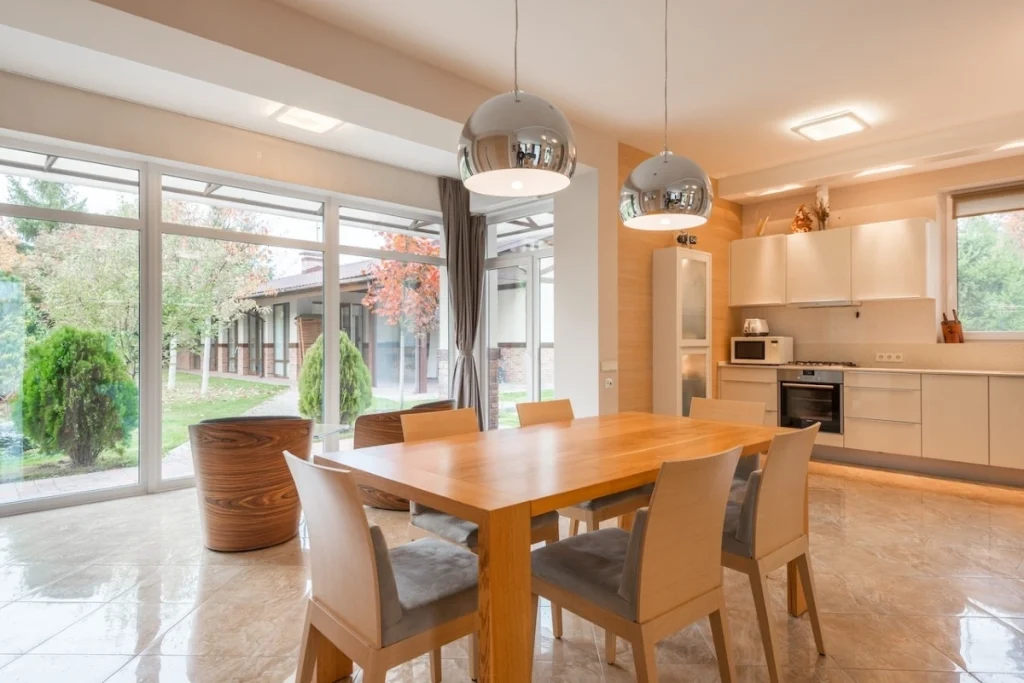Are you struggling to design your working space? Do you want to know all the steps to design that working corner? You are in the right place, this complete guide will help you build a cozy workspace. In general, we will have 4 key steps as below.
1. Define the design goals.
Before starting to put your hand into designing anything, you should write down goals that your design should have such as color palette, materials, styles…So that, you can ensure the design will not lack any goals. For example, in this article, we will design a working space with the goals below
- The working space will be minimalist and dominated by a black, gray, and white palette.
- We will focus on wood materials
- It needs to have spaces for storing books and one computer
- There should be some plants to make the workspace look more environmentally friendly.
2. Determine the position for your working space.
After you define all the goals, you can walk around your home and determine the position for your working corner. In this case, you should choose a space that is quiet, for your focus during working, and has natural light, so that you can grow some plants. Let’s imagine we will have a working space in a corner of the room with a large window beside it.
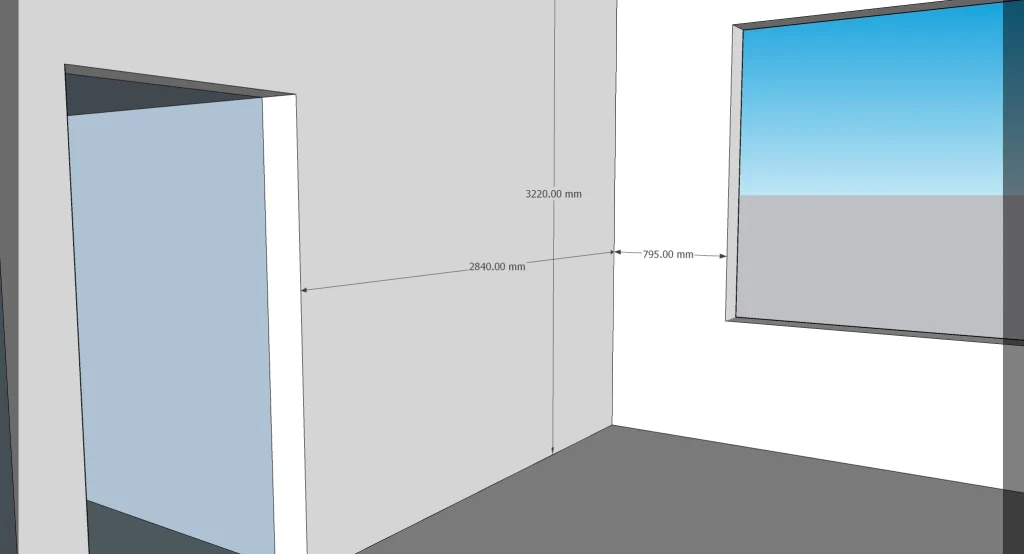
When you have your desired space, let’s measure it a little bit. It will be useful for selecting furniture sizes. Back to our example, we can take the measurements from the window and door to to the corner edge of the wall as well as from the floor to ceiling. With these three basic measurements, we can imagine how big and tall our table and bookshelf will be later.
3. Select furniture and decorative elements.
Now we can go to the third step, which is to select furniture and decorative elements. To have the right selections, you need to sit down and draw the layout of the working space. If you do not know 3D design, you can go with a pencil with paper for 2D design.
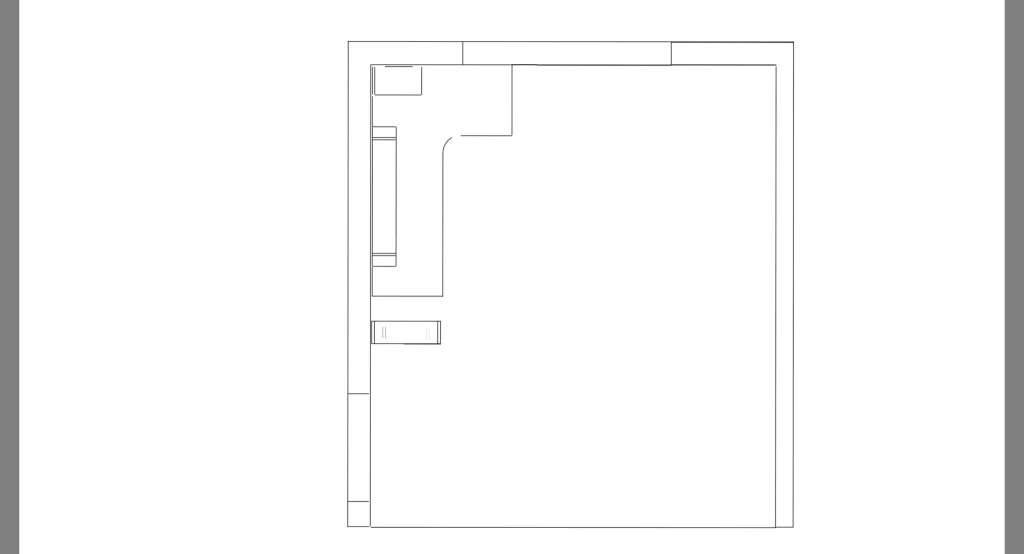
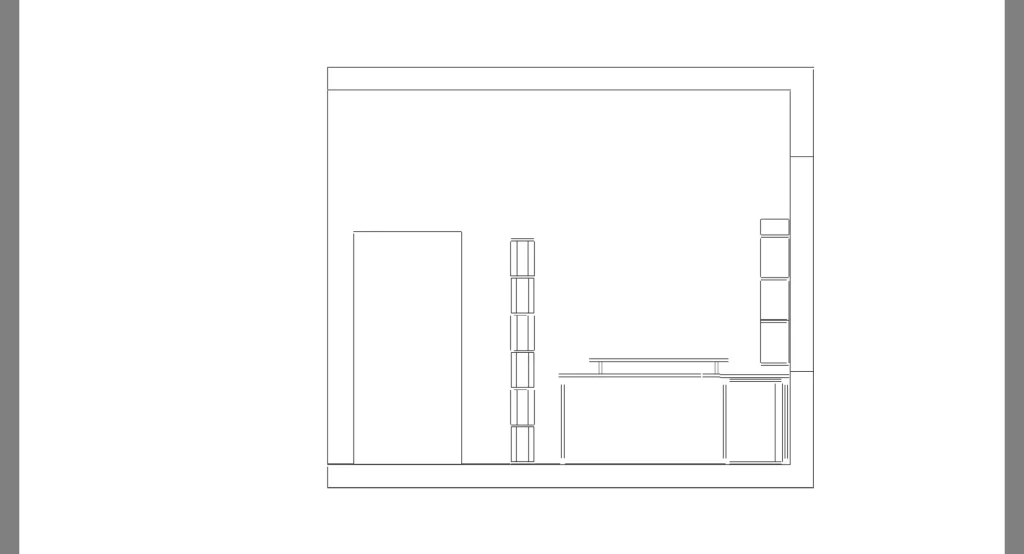
In our instance, our working space is a corner, thus, I will choose a gray L table for more working space. Because the distance from the window to the corner edge is not much, if I select a normal table, I will lose that space for nothing. Therefore, the L table is the best option for working space optimization.
We also have some books that need to be arranged, so I decided to keep some space near the door for a wooden bookshelf.
A space at the edge of the corner is quite hard to handle, I do not want to lose that space so the idea of a single column shelf comes to my mind. We can use that shelf for storing decorative elements and a few books.
I also think about a monitor stand to make sure you have the right pose while working. It also helps to create more space on the table by putting the keyboard and mouse underneath. For decorative elements, they are up to your favorite, but let’s try to pick those made of wood as much as you can.
4. Implement designing your working space.
In the final step, we will implement building our working space following the design that we have done in the three steps above. Let’s begin with the big furniture and then move to the smaller ones. In our case, we should put the gray L table into the position first, and then the bookshelf.
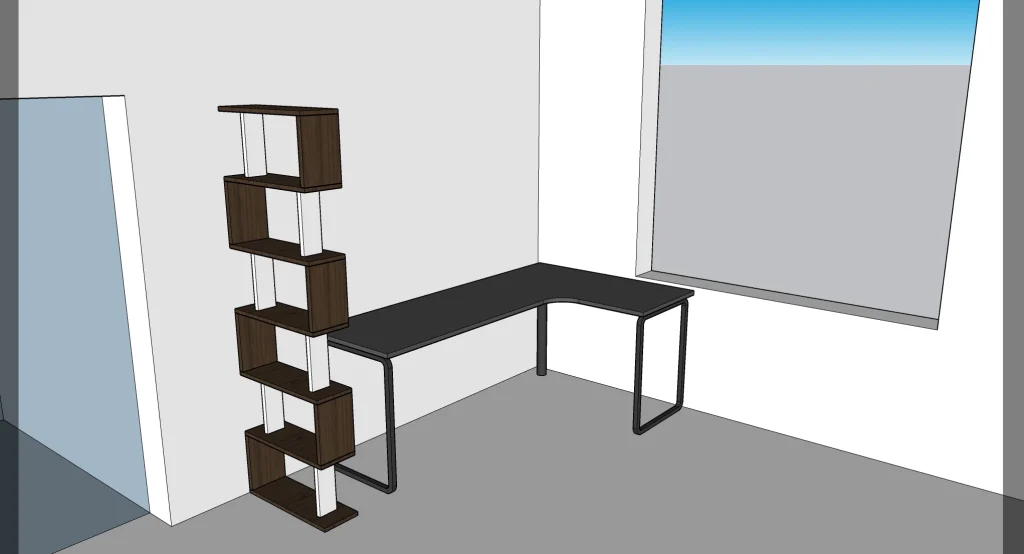
Next, we place the monitor stand and single column shelf on the table.
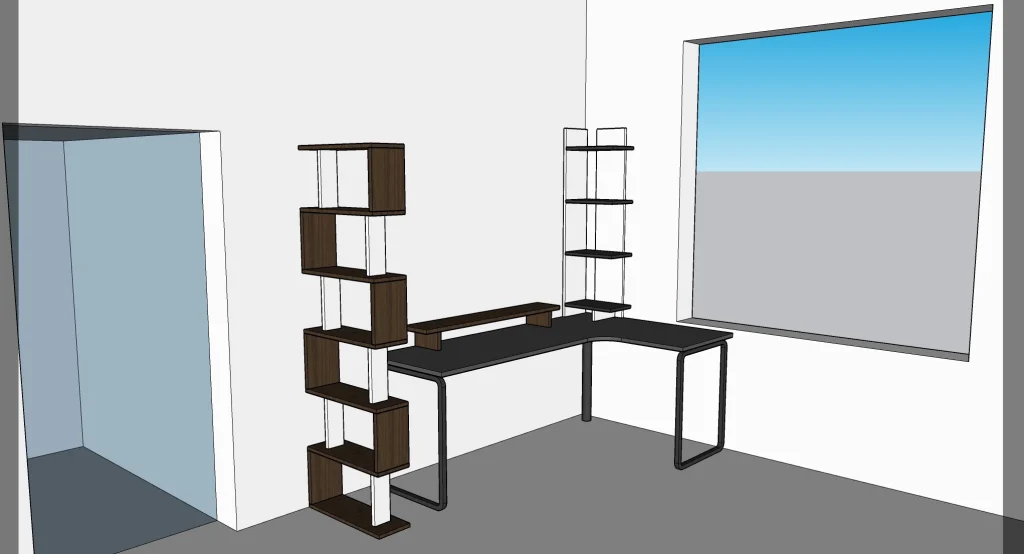
Then, we will set up the computer, place an Ergonomic chair, and arrange books on the shelf.
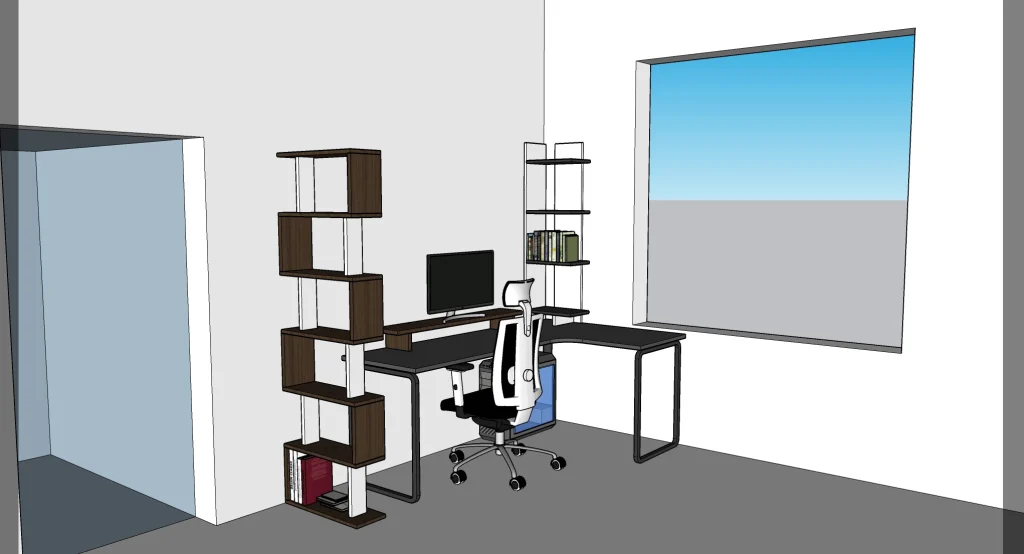
I want to create an area for reading books, so I will put a reading lamp near the window. So that, you can read a book with natural light in the morning and with the reading lamp in the evening. The space above the computer screen is quite empty, thus, I decided to hang two minimalist pictures to cover that space.
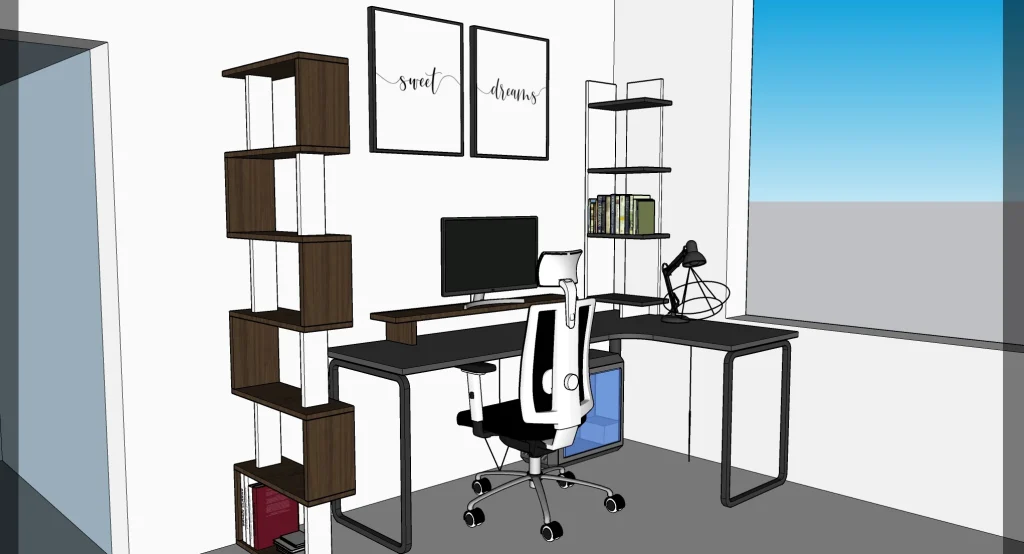
I also want to make our working corner look cozier at night, so I will install some LED strip lights behind the computer screen and under the table.
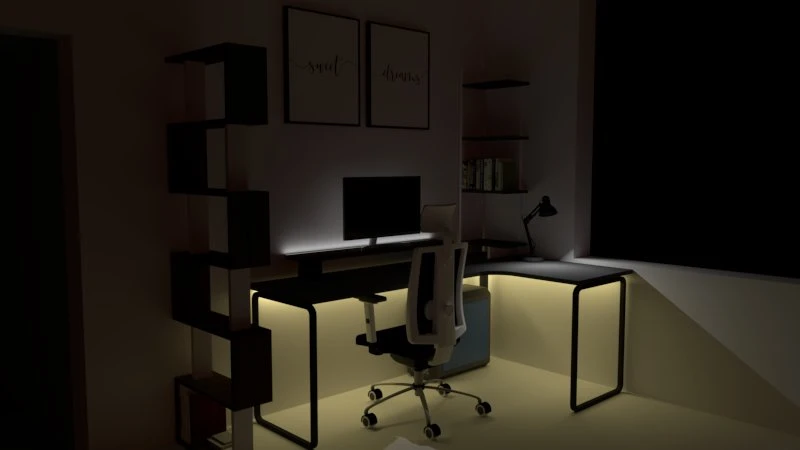
Finally, I placed some plants and decorative elements on the table as well as on the shelves to put an end to our working space design. Now you can step back or sit on the Ergonomic chair and enjoy your work space.
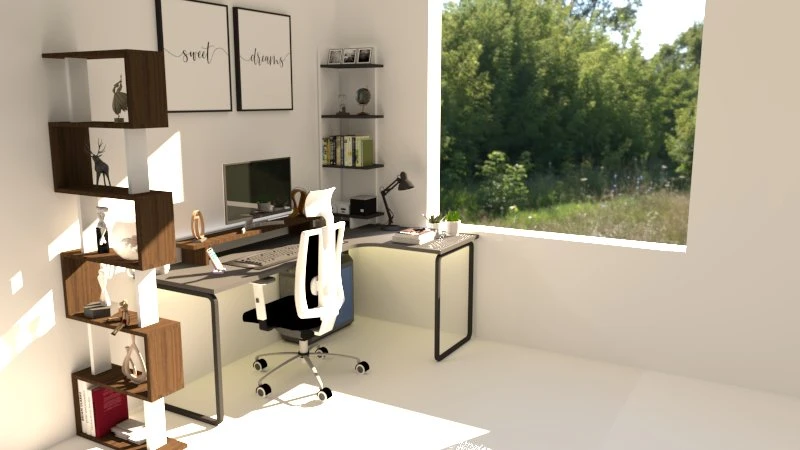
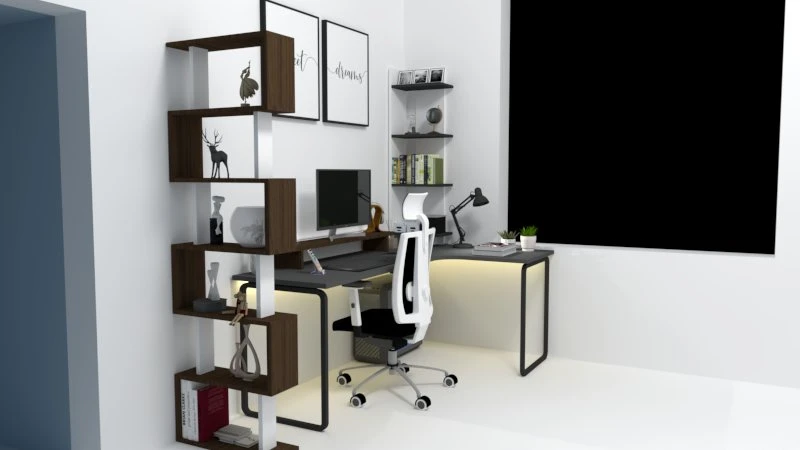
That’s all the steps to create a productive workspace. By reading this guideline, I hope you can design your working space by yourself to enhance the quality of your work and reduce stress.
